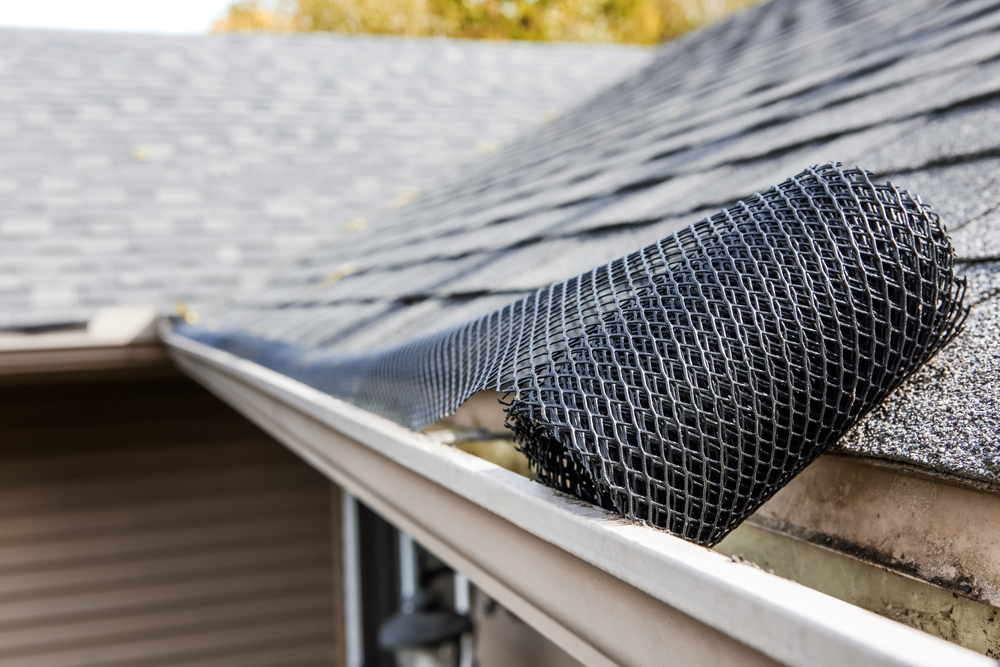

No one wants to be left with the chore of regularly cleaning gutters. Since it is often messy and dirty, there are many ways to avoid this task. To solve the issue, many result in using gutter guards. The emergence of this tool has greatly reduced and even eliminated the need to clean gutters so frequently.
Therefore, in this article, we’ll discuss the pros and cons of using gutter guards, learn if they are worth the purchase, and learn about the many different types available.
The Concept of Gutter Guards
A gutter guard has different names, including a gutter helmet, a gutter cover, and a gutter screen. It is mainly used to cover the top of your gutters and let water glide through. In the same light, it traps leaves, debris, and twigs, preventing your gutter from being clogged, which can lead to basement flooding, soil erosion around your home, water, mold, or foundation damage.
Some of the types of gutter guards that you’ll find include:
- Reverse curve gutter guards are effective against large debris.
- Micro-mesh gutter guards are more expensive but they also help to prevent large debris in your gutter.
- Foam gutter guards, on the other hand, are made of plastic.
- Bottlebrush gutter guards are made of brittles, and they catch debris on their top.
- Screen gutter guards are the most common types, and they are easy to install, budget-friendly, and fit any roof style.
These gutter guard types are usually made with materials like copper, stainless steel, aluminum, foam, and plastic. They catch unwanted materials that could crawl or flow into your gutters and prevent damage, pest infestations, and other similar issues. While they are not usually debris-proof, they keep out dirt from your gutter and help to protect it adequately. This means they just help reduce the number of times you need to pay someone to clear the debris from your gutter.
Pros
There are various advantages to using a gutter guard. They include:
- They save time and money on maintenance.
- Besides preventing debris and leaves from entering your gutter, it also guards against pests like mice, squirrels, spiders, etc., from breeding in them.
- They also prevent gutter freezing and ice dams during the winter. They ensure an unclogged and clean gutter that lets water flow through easily.
- Gutter guards offer excellent fire protection by acting as a physical barrier between embers and gutter debris, which are potential fire hazards.
- They prevent rust and corrosion.
- They boost water flow through your gutter and downspouts.
Cons
Indeed! The advantages mentioned above indicate that getting a water guard will make things easier. However, they also have some flaws you ought to consider to help make more informed decisions. They include:
- Gutter guards are not entirely foolproof. They majorly prevent large debris from taking over your gutters, but you still require professional help from time to time to maintain and dispel smaller debris.
- They require occasional cleaning, which can be difficult and time-consuming.
- Things like large hail, ice chunks, ladders, and falling tree limbs can easily dent these guards.
- The buildup’s weight gathered over time, can cause gutter sagging, water overflow, and even foundation damage if it is not regularly cleaned.
- They are usually visually unappealing.
- They cancel your roof warranty because they must be installed under your roof shingles, thereby tampering with it.
If you need help installing a gutter guard, call Reynolds Gutters for assistance. They have professional handymen who can handle your project from beginning to end with desirable results. They can also help you pick the right guard for your gutter and install it properly. If you need help with maintenance or any additional information, they are always at your disposal.